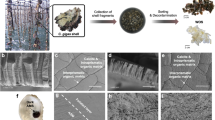Abstract
THE Rotifera are remarkable among the Metazoa for their small size, often smaller than the largest ciliated Protozoa. Many rotifers are colourless or at most show some slight colour in the gut wall, clearly due to pigment taken in with food. A few species may have pigment spread throughout the body, others may have red eyespots and the fat globules of resting eggs may be bright orange in colour. This combination of small size and general lack of colour makes investigation of the pigments of this group difficult and so far as we are aware no rotifer pigments have previously been identified.
This is a preview of subscription content, access via your institution
Access options
Subscribe to this journal
Receive 51 print issues and online access
$199.00 per year
only $3.90 per issue
Buy this article
- Purchase on Springer Link
- Instant access to full article PDF
Prices may be subject to local taxes which are calculated during checkout
Similar content being viewed by others
References
Gilchrist, B. M., and Green, J., Proc. Roy. Soc., B, 152, 118 (1960).
Author information
Authors and Affiliations
Rights and permissions
About this article
Cite this article
GILCHRIST, B., GREEN, J. Carotenoid Pigments in Rotifera. Nature 195, 905–907 (1962). https://doi.org/10.1038/195905a0
Issue Date:
DOI: https://doi.org/10.1038/195905a0
Comments
By submitting a comment you agree to abide by our Terms and Community Guidelines. If you find something abusive or that does not comply with our terms or guidelines please flag it as inappropriate.



